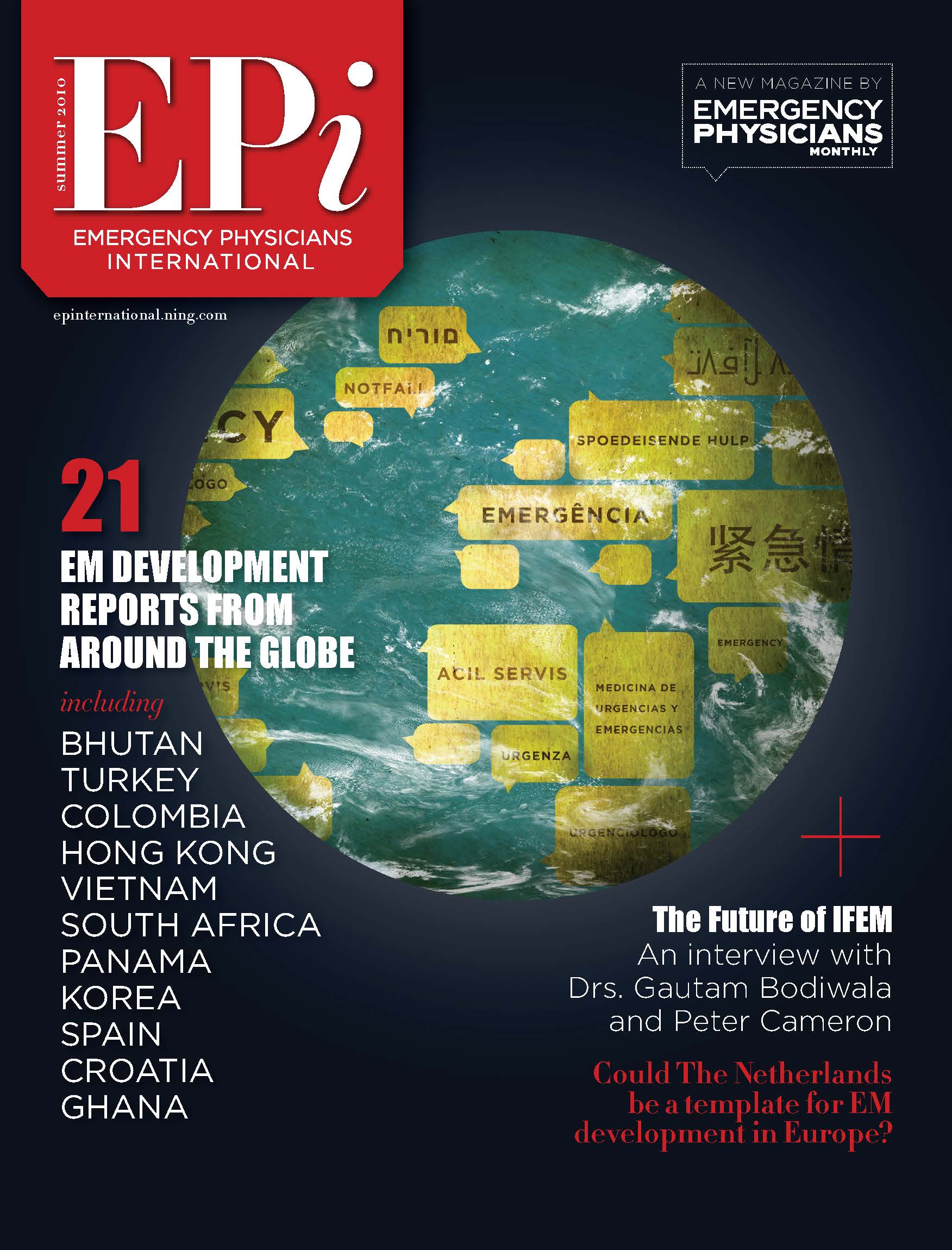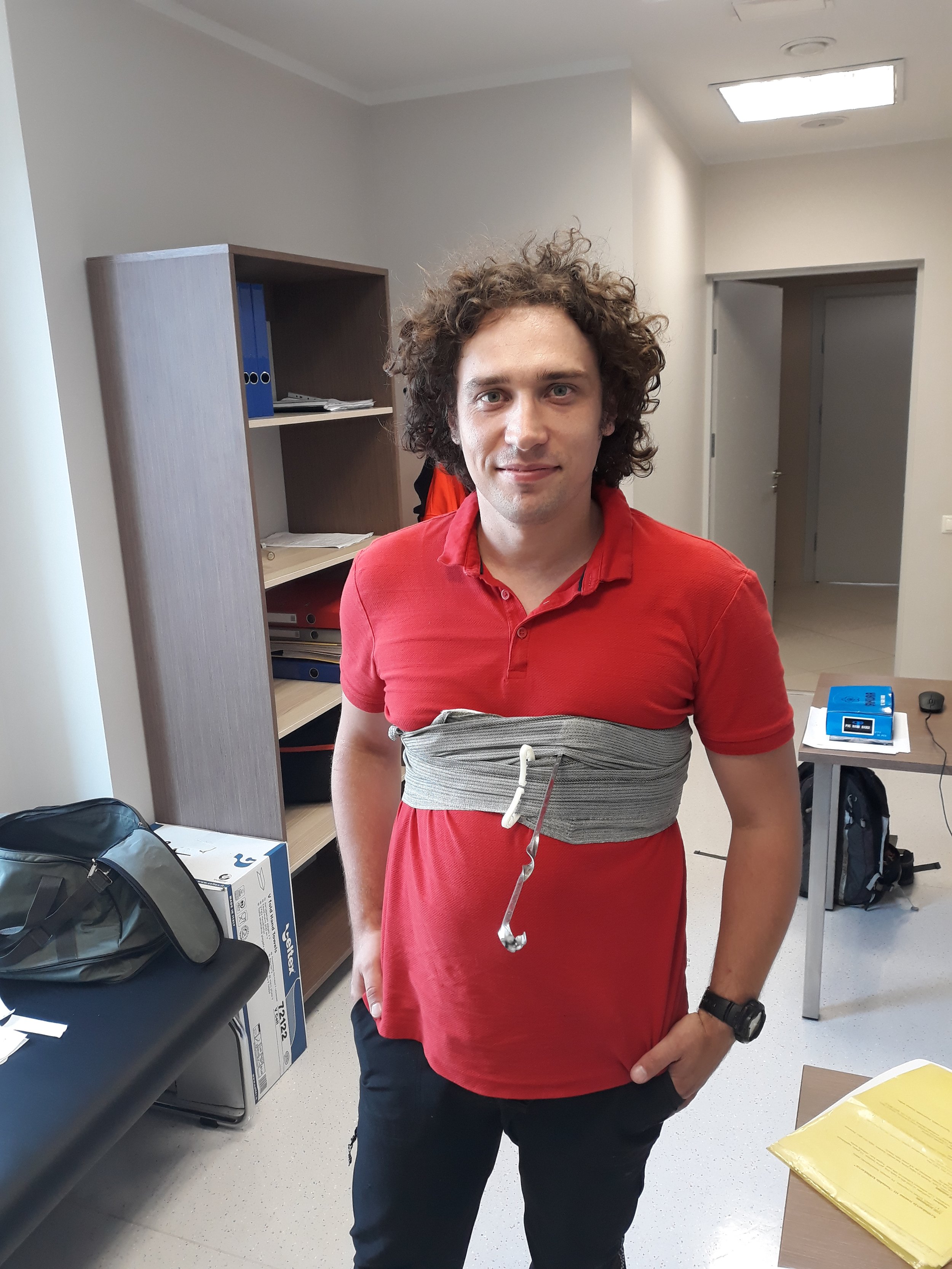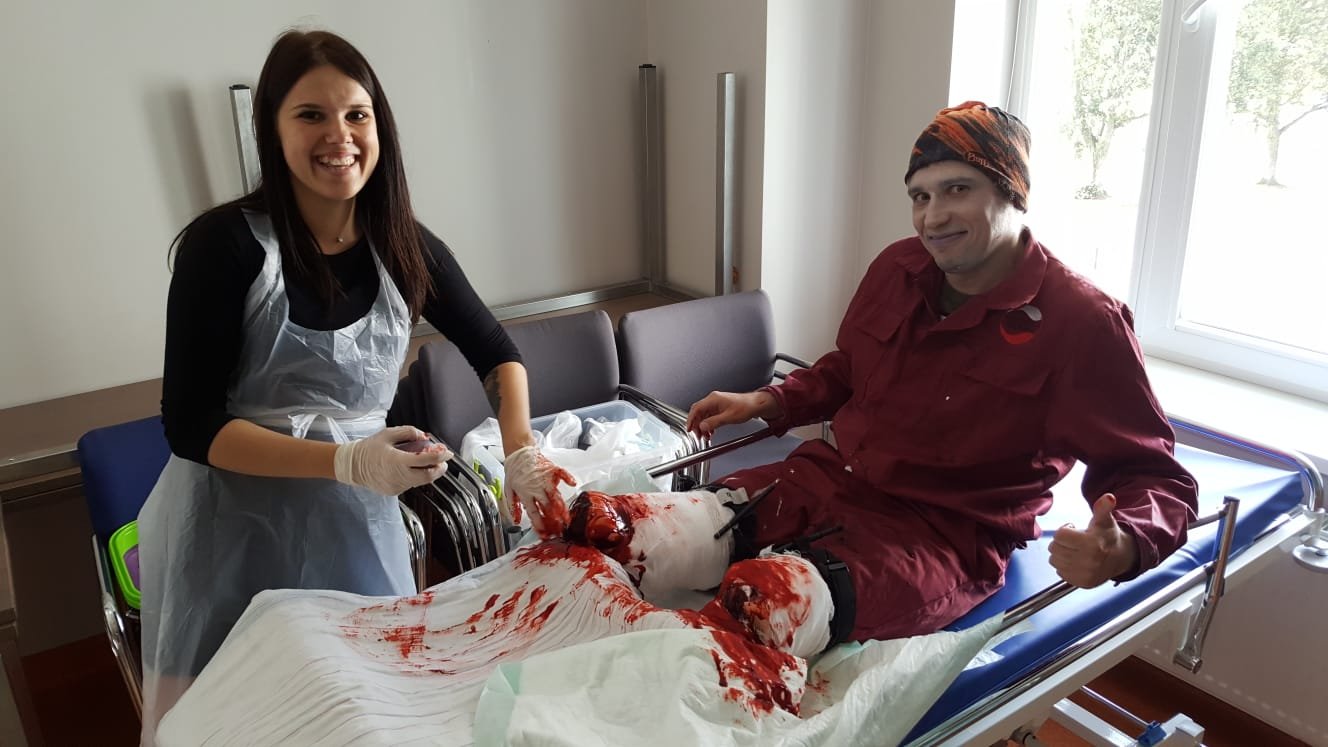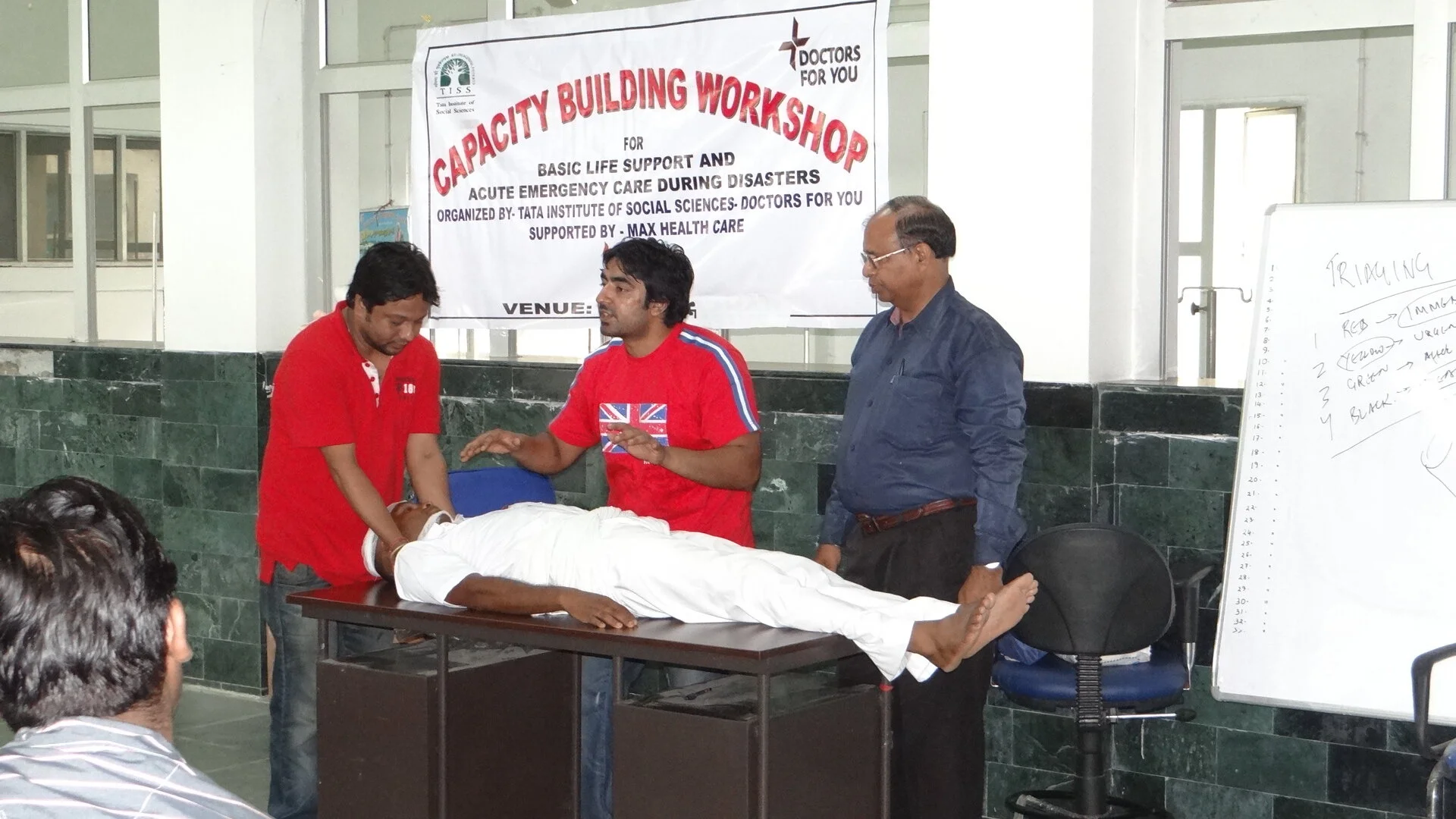Building EM in Latvia – One Physician's Journey
Dr. Jevgenijs Kravcuks gives a personal account about the efforts to upgrade emergency care in Latvia.
2016: The Start
My colleague Maris Bartkevics came from Switzerland in 2016 where he had worked as a cardio surgery resident in Inselspital. He proposed the idea of organizing a lecture about ATLS. So we gathered about 20 people, brought a coffee machine and croissants, and chatted with colleagues on the topic – all to the best Swiss standards.
2016: ATLS
Several months later I attended an ATLS course in the UK. That was the first international course I ever attended and it was a great opportunity to be able to participate as a resident. The course made a huge impact on my professional career and gave me a vision for how the trauma patient can be treated. After returning to Latvia, I proposed to implement ATLS in our country. And here is where I started to encounter resistance. The Latvian Surgeons’ Association refused my proposal because no one wanted to invest much into something so “well known”. After my idea was refused, I started the long journey of trying to implement important systemic changes myself.
2017: Personal Development
I continued searching for opportunities for personal development, so I spent a month in Bern University Hospital Emergency Department where I became truly fascinated with how trauma care was organised. The most life-changing moment was when I saw the simulation in situ lead by Monika Brodmann Meader. My dream was that someday in my hospital this could be done. This idea stuck with me for years.
2017–2020: Trauma Course Development
I was obsessed with the idea that Latvia can be an ATLS country, so I started with a local course for young doctors. We organised a faculty development course in Riga and ran the first trauma simulation course together with instructors from Bern. It was a course based on ATLS, with 24 clinical scenarios using simulated patients for better high-fidelity scenarios. Due to the success of the first course, it was repeated in the following two years.
2019: European Trauma Course
I also completed the ETC course in 2019 in Hull , United Kingdom, and again was very impressed with how the scenarios are presented by the teaching faculty. The course in itself is fantastic and inspired me to implement the principles of ETC and trauma team approach in my subsequent trauma courses as well.
2022: What have I achieved
For most of the physicians in Europe, ATLS and ETC courses are part of the routine. I know that for residents in UK, Switzerland and other countries, these courses are a part of their continuing professional development paid by employers. Unfortunately, Latvia is still a lower income country and a lot of doctors cannot afford even local trauma courses. Moreover, we do not have ATLS certified providers and instructors. In the last five years I can say that my personal growth in trauma education has been significant. And it has been and continues to be really challenging to fight for every opportunity and explain to others why it is so important.
I continued work on improving the trauma care system. In 2020 I introduced the local hospital polytrauma protocol which was accepted by the administration. The challenge remains, however, to implement all of the ATLS and ETC principles in real life practice.
Since November 2021 I’ve held a consultant position in the emergency department, and I am also the senior doctor of ICU within the emergency department. This natural professional progression allows me to develop a standard in trauma care in my department, which is one of the biggest EDs in our country. I started to train young doctors when I was a junior doctor myself, and by now my cohort have all become consultants. We all share a common understanding of the trauma patient care after years of training together. We have common goals. However, we still face some resistance from established colleagues from previous generations, whose behaviors and personal attitudes cannot be changed easily.
Role Stickers
We run simulations in situ and there is now financial support from the hospital administration. We plan to run 15 in-hospital courses with the real ICU team and deliver teaching to the trauma team. We aim to keep improving team performance, for example with the implementation of a team leader vest, team role stickers and wall posters to achieve course goals.
I think my mission is not only to improve our trauma care system, but also to show other young doctors that we can achieve more and that we should not be afraid of setting big goals for professional development.
In conclusion, I wanted to say that the only reason of not doing something is limitations set by yourself. My new personal motto at this moment is: “Impossible is only an opinion.”














